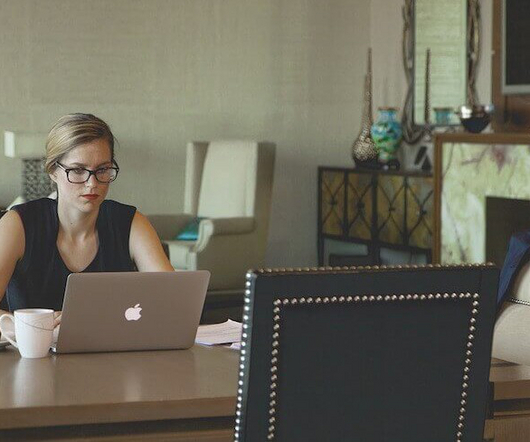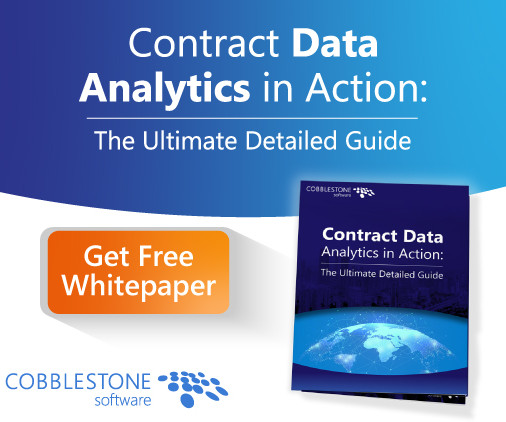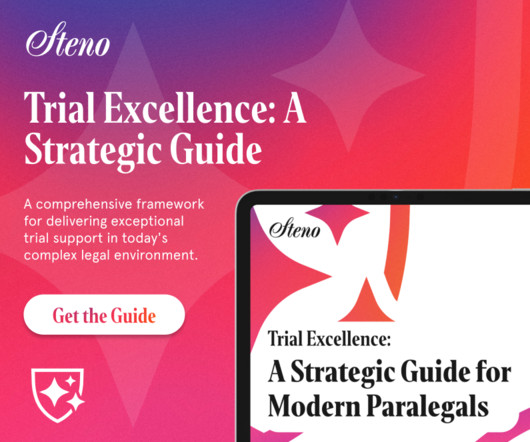“BREAKING NEWS: I am Still Alive.”
The Paralegal Society
JULY 22, 2015
Alright, alright, alright—I, the fearless founder, am here today to confirm that I did not (quite) fall off the face … Continue reading →

The Paralegal Society
JULY 22, 2015
Alright, alright, alright—I, the fearless founder, am here today to confirm that I did not (quite) fall off the face … Continue reading →

Broadcast Law Blog
JULY 9, 2015
Twice this morning, I was faced with the question of whether a business needs a license to play a radio or TV station on their premises , once in a story in one of the broadcast trade publications (see the article here , in the You Can’t Make This Up column toward the bottom of the article) about a gas station that thought that they got around paying ASCAP, BMI and SESAC fees by using “6 or 7” consumer radios around the station.
This site is protected by reCAPTCHA and the Google Privacy Policy and Terms of Service apply.

ClimateChange-ClimateLaw
JULY 31, 2015
By Nancy Rader, Executive Director of the California Wind Energy Association, and Michael B. Gerrard, Columbia Law Professor and Director of the Sabin Center. The Los Angeles County Board of Supervisors’ move to ban utility-scale wind turbines and to impose severe restrictions on utility-scale solar in unincorporated areas of the county is not compatible with averting the worst impacts of climate change.

DigitalParalegalServices
JULY 28, 2015
3 Common Reasons Solo Attorneys Call a Virtual Legal Assistant. Smart lawyers often learn from their peers by engaging in mentor relationships. Some take it a step further and retain professional services of a lawyer coach. From time to time in my 6-year virtual paralegal practice, I have been privileged to receive referrals from lawyer coaches. A recent referral caused me to re-examine just exactly why the referrals are made.

Speaker: David Worrell, CFO, Author & Speaker
Your financial statements hold powerful insights—but are you truly paying attention? Many finance professionals focus on the income statement while overlooking key signals hidden in the balance sheet and cash flow statement. Understanding these numbers can unlock smarter decision-making, uncover risks, and drive long-term success. Join David Worrell, accomplished CFO, finance expert, and author, for an engaging, nontraditional take on reading financial statements.

ABC's of E-Discovery
JULY 29, 2015
Doug Austin's " Pitfalls Associated with Self-Collection of Data by Custodians: eDiscovery Best Practices " will save you, and therefore your client, time and money when you "self-collect" documents and files for discovery. Take a look at his article here and save a copy for your eDiscovery File: eDiscovery Pitfalls - Don't Fall!
Paralegal Brief brings together the best content for paralegals and legal professionals from the widest variety of industry thought leaders

Broadcast Law Blog
JULY 17, 2015
It looks like the dates for the FCC incentive auction (where some broadcasters will sell their spectrum to the FCC to be repackaged and resold to wireless companies for wireless broadband purposes) are becoming clear. After this week’s delay of the consideration of the incentive auction items (see our article here ), the drafts of the FCC orders that were not considered at yesterday’s meeting have now appeared on the list that the FCC maintains of items that are circulating among the Commission

Broadcast Law Blog
JULY 22, 2015
In several recent cases, the FCC has denied exemptions from the requirement that programming carried on TV stations and MVPDs have closed captions to serve the hearing impaired members of the viewing audience. While exemptions from these requirements are allowed if a programmer can demonstrate that the captioning would present an economic hardship , these waivers are difficult to receive as a programmer must show that, looking at its overall operations, there are insufficient financial resources

Broadcast Law Blog
JULY 24, 2015
Yesterday, it was announced that the Radio Music License Committee (RMLC) settled its lawsuit with SESAC (see the press release here , and the full agreement here ), where the RMLC had charged that SESAC’s practices in collecting its music royalties from the radio industry violated the antitrust laws (we wrote about the filing of the lawsuit here ).

Broadcast Law Blog
JULY 14, 2015
In the last month, the FCC has released two decisions dealing with efforts by holders of expiring FM construction permits to retain the rights to construct the technical facilities authorized by that permit beyond the expiration date of the permit. In one case , the FCC announced a policy that, from now on, the construction of temporary facilities will be insufficient to warrant the grant of a license application for a new station.

Advertisement
Analyzing contract trends with manual contract management is like sifting through a pile of papers in a dimly lit room, trying to find clues manually. Advanced CLM software’s contract data analytics, on the other hand, is like having an AI-based, intelligent magnifying glass that not only highlights key clues but also connects the dots for you. With innovative, AI-powered contract data analytics, you can solve the mystery of trends faster and with greater accuracy, making informed decisions base

Broadcast Law Blog
JULY 21, 2015
Over-the-top video systems , using the Internet to transmit over-the-air TV signals to consumers, are back in the news. Last week, a US District Court Judge in the Central District of California, in a case involving FilmOnX , an Aereo-like service that had been involved in many of the court decisions that had preceded the Supreme Court’s Aereo decision, suggested that such platforms can get that public performance right through the statutory license provided by Section 111 of the Copyright Act –

Broadcast Law Blog
JULY 19, 2015
On Friday, the FCC announced a consent decree for violations of the requirements that TV stations provide at least three weekly hours of CORE programming addressing the educational and informational needs of children. The operator of eight TV and Class A TV stations in the southeast US agreed to make a $90,000 “voluntary contribution” to the Federal government and to adopt new practices to insure future compliance with the CORE programming requirements.

Broadcast Law Blog
JULY 22, 2015
Last week, we noted that the FCC was planning for today a webinar on channel-sharing issues in connection with its incentive auction. That same article also summarized the FCC’s decision modifying the rules for channel sharing. Yesterday, the FCC announced that the webinar has been postponed until August 13 , presumably so that the FCC staff conducting the webinar can incorporate any decisions made at the FCC’s August 6 meeting, where the details for the procedures for the conduct of the incenti

Broadcast Law Blog
JULY 16, 2015
The FCC was today supposed to be considering the adoption of a public notice that would specify the detailed procedures to be used in the incentive auction (see our articles here and here ). In the incentive auction, the FCC will buy the spectrum used by a number of TV stations, repack the remaining TV stations into a more compact TV band, and then resell the vacated spectrum to wireless companies for wireless broadband and other wireless uses.

Speaker: Allison Mears, Adela Wekselblatt, and George Socha
Artificial intelligence is reshaping the legal industry, and paralegals are at the forefront of this transformation. As AI becomes more integrated into legal workflows, paralegals can streamline their daily tasks, enhance efficiency, and add greater value to their firms and organizations. But what exactly does AI mean for paralegals today—and how can you leverage it to your advantage?

Broadcast Law Blog
JULY 16, 2015
The FCC issued a public notice seeking comment on a Petition for Rulemaking filed by cable operator Mediacom asking for the FCC to require TV stations, in their license renewal applications , to certify that the licensee will not block any multichannel video programming distributor (i.e. cable or satellite TV) from carrying the signal of the station at the end of a retransmission consent agreement unless the station is accessible over-the-air or by Internet streams to at least 90% of the homes i

Broadcast Law Blog
JULY 13, 2015
Each quarter, my partner David O’Connor and I update a list of the legal and regulatory issues facing TV broadcasters. That list of issues is published by TVNewsCheck and is available on their website, here. Our latest update was published today, and provides a summary of the status of legal and regulatory issues ranging from the adoption of the ATSC 3.0 standard at one end of the alphabet to White Spaces and Wireless Microphones on the other – with summaries of other issues including JSAs , the

Broadcast Law Blog
JULY 10, 2015
A webinar to explain the new rules for TV stations that want to share 6 MHz channels after the incentive auction (so that the broadcasters sharing the channel post-auction can enjoy the financial benefit of selling one of their channels during the auction), will be held by the FCC on July 22 from 2 to 3 PM ET. Information about the webinar and a place to register can be found on the FCC website, here.

ClimateChange-ClimateLaw
JULY 9, 2015
Arijit Sen, Sabin Center Summer Intern. Recently, two competing plans to reform California’s four-tier electricity rate structure of the three investor-owned utilities (IOUs) [1] have emerged from the California Public Utilities Commission (CPUC). On April 21, 2015, CPUC administrative law judges (ALJs) McKinney and Halligan filed a proposal that suggests implementing a two-tiered system, with a 20% maximum difference in rates for customers.

Advertisement
Modern trial practice has evolved beyond basic organization. With technology reshaping courtrooms and attorneys expecting more than ever, paralegals need to elevate their capabilities while mastering the fundamentals of trial excellence. This comprehensive guide from Steno, built from author Joe Stephens' real-world experience as both a practicing attorney and law professor, provides a blueprint for delivering exceptional trial support in today's complex legal environment.

Broadcast Law Blog
JULY 8, 2015
Earlier this week, we wrote about the Court of Appeals decision denying appeals of the FCC’s 2014 order setting the framework for the incentive auction to reclaim spectrum used by TV stations and repurpose it for use by wireless companies to provide more high-speed wireless broadband opportunities. But, in addition to the appeals, there were also a number of petitions for reconsideration of the 2014 order.

Broadcast Law Blog
JULY 6, 2015
The FCC’s stated goal for some time has been to conduct the broadcast incentive auction in 2016 – buying the spectrum used by a number of TV stations, repackaging it and selling it to wireless companies for wireless broadband purposes. This will happen in a very complicated process where there will be two simultaneous auctions, one for TV stations bidding to surrender their channels, and a second for wireless companies looking to buy that spectrum.

Broadcast Law Blog
JULY 1, 2015
It’s another summer with music copyright issues hitting the press almost every day. Over the next week or two, we will try to catch up on some of the legal issues raised by all the music news. First, let’s look at the significant actions in the last ten days in the battle over whether there is a public performance right in pre-1972 sound recordings.
Let's personalize your content